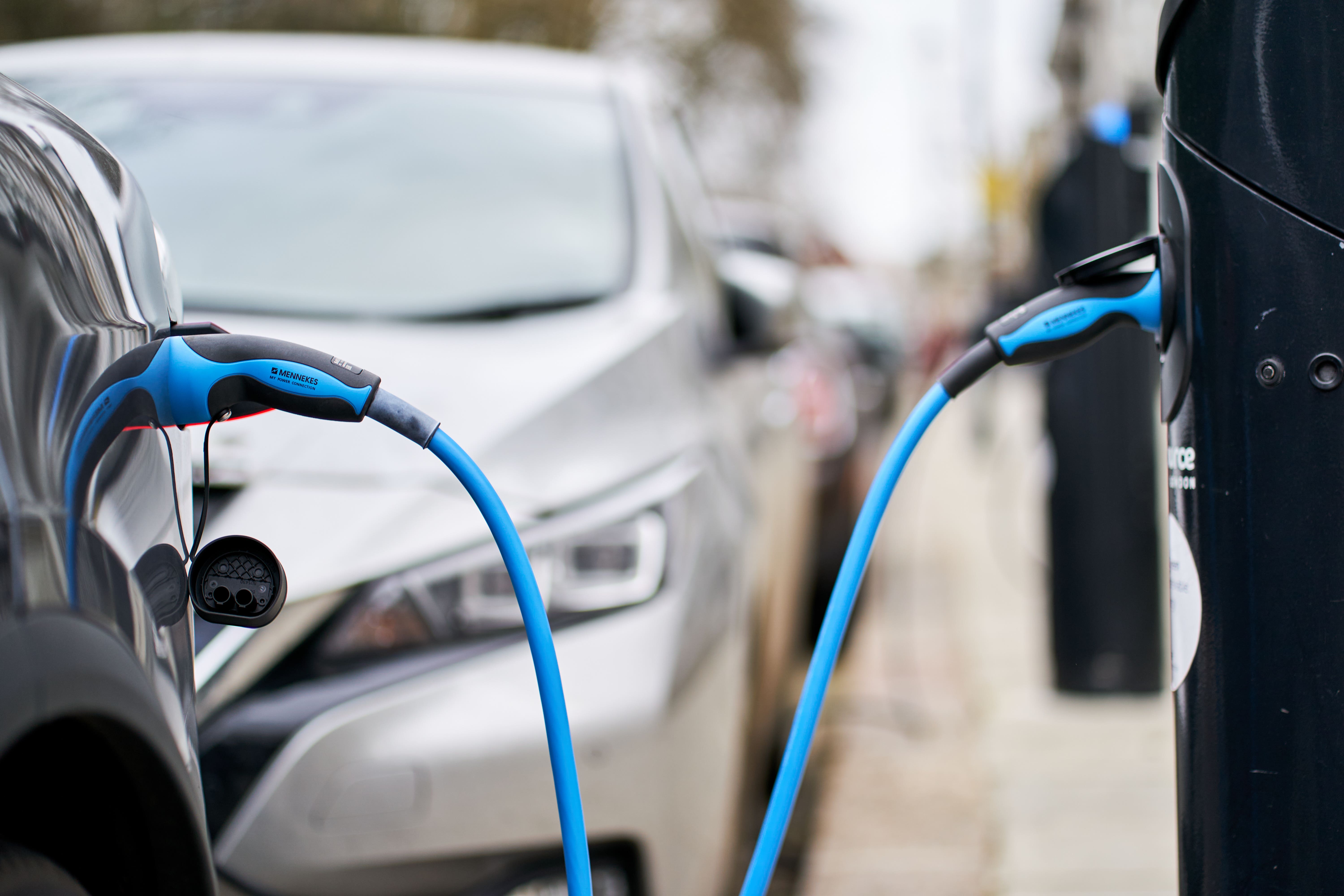Peers urge Government to ‘motor on’ with rolling out electric charging points
Baroness Parminter said the move to electric vehicles is ‘one of the most important actions if we are going to get to net zero’.

Your support helps us to tell the story
From reproductive rights to climate change to Big Tech, The Independent is on the ground when the story is developing. Whether it's investigating the financials of Elon Musk's pro-Trump PAC or producing our latest documentary, 'The A Word', which shines a light on the American women fighting for reproductive rights, we know how important it is to parse out the facts from the messaging.
At such a critical moment in US history, we need reporters on the ground. Your donation allows us to keep sending journalists to speak to both sides of the story.
The Independent is trusted by Americans across the entire political spectrum. And unlike many other quality news outlets, we choose not to lock Americans out of our reporting and analysis with paywalls. We believe quality journalism should be available to everyone, paid for by those who can afford it.
Your support makes all the difference.Peers are calling on the Government to “motor on” with the rollout of electric vehicle (EV) charging points.
There are currently around 70,000 public charging points in the UK, Liberal Democrat peer Baroness Parminter told Parliament. The previous Conservative administration set a target of 300,000 charge points by 2030.
A report from the Environment and Climate Change Committee urged ministers to ensure charging is “reasonably priced, convenient and reliable”, with the same VAT rates for domestic and public charging.
Since the new Labour Government came in, they've hardly put their foot to the floor in terms of delivering on the EV agenda
Former chairwoman Lady Parminter said the move to electric vehicles is “one of the most important actions if we are going to get to net zero”.
She told peers: “We’ve really got to motor on with getting in more charge points.
“And it’s why we as a committee said the Government needed to mandate local authorities where there are black holes – and there are blackholes around our country – to prepare EV strategies, to ensure that we are getting the EV infrastructure where we need it.”
Lady Parminter also called on the Government to extend the Local Electric Vehicle Infrastructure (Levi) Fund, which supports local authorities to deliver charging points.
She went on to say: “Since the new Labour Government came in, they’ve hardly put their foot to the floor in terms of delivering on the EV agenda.”
She added: “We are not going to bring the British public with us unless they know they’re going to be able to charge their electric vehicles.”
Take-up is low because the quality of the user interface at charge points can be completely unfit for purpose
Independent crossbench peer Lord Birt pressed the Government on whether it intends to “devise and implement a plan for an appropriate rollout of public charge points right across the UK and located conveniently to where people live and park their cars”.
He added: “Will this Government ensure the day-to-day cost of running an EV is cheaper than a carbon-fuelled vehicle?”
Lord Birt went on to say that “take-up is low because the quality of the user interface at charge points can be completely unfit for purpose”.
The peer described the “complete nightmare” he had while on holiday in the Hebrides earlier this year, where he found himself having to read “over a hundred words of user instructions”, scan a QR code, and then download an app, in order to use a charging point.
Labour peer and former trade union leader Lord Woodley argued that “there needs to be a VAT reduction and equalisation of VAT on public and private charging”.
Currently, those with their own charging point at home are charged 5% VAT while those who use public charging points pay 20% VAT, which Conservative peer Lord Fuller branded a “discrimination”.
Energy security and net zero minister Lord Hunt of Kings Heath said: “We see this as a very, very important policy area and we look forward to making a series of announcements in the next few months when we are clearer about the financial situation.”